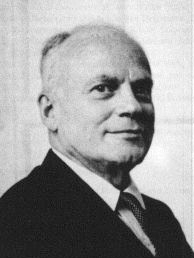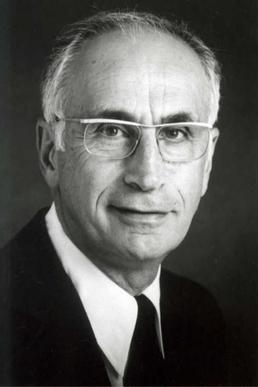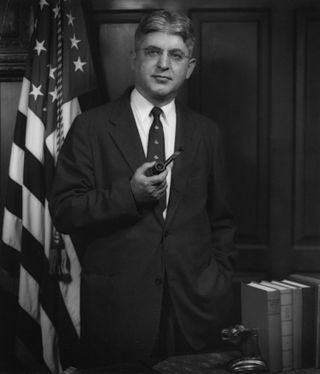Related Research Articles

Milton Friedman was an American economist and statistician who received the 1976 Nobel Memorial Prize in Economic Sciences for his research on consumption analysis, monetary history and theory and the complexity of stabilization policy. With George Stigler and others, Friedman was among the intellectual leaders of the Chicago school of economics, a neoclassical school of economic thought associated with the work of the faculty at the University of Chicago that rejected Keynesianism in favor of monetarism until the mid-1970s, when it turned to new classical macroeconomics heavily based on the concept of rational expectations. Several students, young professors and academics who were recruited or mentored by Friedman at Chicago went on to become leading economists, including Gary Becker, Robert Fogel, Thomas Sowell and Robert Lucas Jr.

Kenneth Joseph Arrow was an American economist, mathematician, writer, and political theorist. He was the joint winner of the Nobel Memorial Prize in Economic Sciences with John Hicks in 1972.

Franco Modigliani was an Italian-American economist and the recipient of the 1985 Nobel Memorial Prize in Economics. He was a professor at University of Illinois at Urbana–Champaign, Carnegie Mellon University, and MIT Sloan School of Management.

Supply-side economics is a macroeconomic theory that postulates economic growth can be most effectively fostered by lowering taxes, decreasing regulation, and allowing free trade. According to supply-side economics, consumers will benefit from greater supplies of goods and services at lower prices, and employment will increase. Supply-side fiscal policies are designed to increase aggregate supply, as opposed to aggregate demand, thereby expanding output and employment while lowering prices. Such policies are of several general varieties:
- Investments in human capital, such as education, healthcare, and encouraging the transfer of technologies and business processes, to improve productivity. Encouraging globalized free trade via containerization is a major recent example.
- Tax reduction, to provide incentives to work, invest and take risks. Lowering income tax rates and eliminating or lowering tariffs are examples of such policies.
- Investments in new capital equipment and research and development (R&D), to further improve productivity. Allowing businesses to depreciate capital equipment more rapidly gives them an immediate financial incentive to invest in such equipment.
- Reduction in government regulations, to encourage business formation and expansion.

Arthur Betz Laffer is an American economist and author who first gained prominence during the Reagan administration as a member of Reagan's Economic Policy Advisory Board (1981–1989). Laffer is best known for the Laffer curve, an illustration of the theory that there exists some tax rate between 0% and 100% that will result in maximum tax revenue for government. In certain circumstances, this would allow governments to cut taxes, and simultaneously increase revenue and economic growth.

The Hoover Institution is an American public policy think tank and research institution that promotes personal and economic liberty, free enterprise, and limited government. While the institution is formally a unit of Stanford University, it maintains an independent board of overseers and relies on its own income and donations. Fellowship appointments do not require the approval of Stanford tenure committees. It is widely described as a conservative institution, although its directors have contested its partisanship.

Jacob Viner was a Canadian economist and is considered with Frank Knight and Henry Simons to be one of the "inspiring" mentors of the early Chicago school of economics in the 1930s: he was one of the leading figures of the Chicago faculty. Paul Samuelson named Viner as one of the several "American saints in economics" born after 1860. He was an important figure in the field of political economy.

William Jack Baumol was an American economist. He was a professor of economics at New York University, Academic Director of the Berkley Center for Entrepreneurship and Innovation, and Professor Emeritus at Princeton University. He was a prolific author of more than eighty books and several hundred journal articles. He is the namesake of the Baumol effect.
Robert Joseph Barro is an American macroeconomist and the Paul M. Warburg Professor of Economics at Harvard University. Barro is considered one of the founders of new classical macroeconomics, along with Robert Lucas Jr. and Thomas J. Sargent. He is currently a senior fellow at Stanford University's Hoover Institution and co-editor of the influential Quarterly Journal of Economics.

Armen Albert Alchian was an American economist. He spent almost his entire career at the University of California, Los Angeles (UCLA). A major microeconomic theorist, he is known as one of the founders of new institutional economics and widely acknowledged for his work on property rights.

Dale Thomas Mortensen was an American economist, a professor at Northwestern University, and a winner of the Nobel Memorial Prize in Economic Sciences.

Arthur Frank Burns was an American economist and diplomat who served as the 10th chairman of the Federal Reserve from 1970 to 1978. He previously chaired the Council of Economic Advisers under President Dwight D. Eisenhower from 1953 to 1956, and served as the first Counselor to the President under Richard Nixon from January to November 1969. He also taught and researched at Rutgers University, Columbia University, and the National Bureau of Economic Research.

Robert Harris Frank is the Henrietta Johnson Louis Professor of Management and a professor of economics at the Samuel Curtis Johnson Graduate School of Management at Cornell University. He contributes to the "Economic View" column, which appears every fifth Sunday in The New York Times. Frank has published on the topic of wealth inequality in the United States.

William Arthur Niskanen was an American economist. He was one of the architects of President Ronald Reagan's economic program and contributed to public choice theory. He was also a long-time chairman of the Cato Institute, a libertarian think-tank.
The Maryland School of Public Policy is one of 14 schools at the University of Maryland, College Park. The school is located inside the Capital Beltway and ranks 16th nationally for schools of public policy according to U.S. News & World Report (2012).

Basil John Moore was a Canadian post-Keynesian economist, best known for developing and promoting endogenous money theory, particularly the proposition that the money supply curve is horizontal, rather than upward sloping, a proposition known as horizontalism. He was the most vocal proponent of this theory, and is considered a central figure in post Keynesian economics
Joseph John Spengler was an American economist, statistician, and historian of economic thought. A recipient of the 1951 John Frederick Lewis Award of the American Philosophical Society and the 1981 Distinguished Fellow Award from the History of Economics Society, he was Professor Emeritus of Economics at Duke University at the time of his death.

David Richard Henderson is a Canadian-born American economist and author who moved to the United States in 1972 and became a U.S. citizen in 1986, serving on President Ronald Reagan's Council of Economic Advisers from 1982 to 1984. A research fellow at Stanford University's Hoover Institution since 1990, he took a teaching position with the Naval Postgraduate School in Monterey, California in 1984, and is now an emeritus professor of economics.
William Viscusi is an American economist whose primary fields of research are the economics of risk and uncertainty, risk and environmental regulation, behavioral economics, and law and economics. Viscusi is the University Distinguished Professor of Law, Economics, and Management at Vanderbilt Law School where he and his wife, Joni Hersch, are the founders and co-directors of the Ph.D. Program in Law and Economics. Prior to his appointment at Vanderbilt, Viscusi was the first John F. Cogan, Jr. Professor of Law and Economics at Harvard Law School and Director of the Harvard Program on Empirical Legal Studies. Viscusi is the author of Pricing Lives: Guideposts for a Safer Society.

Anthony John (Tony) Culyer CBE is a British economist, and emeritus professor of economics at the University of York, visiting professor at Imperial College London and adjunct professor in health policy, evaluation and management at the University of Toronto, known for his work in the field of health economics.
References
- ↑ "New Study Shows No Vitamin D Link to Macular Degeneration". MedPage Today, Crystal Phend
- ↑ Maxwell J. Mehlman; Dale A. Nance. The Case Against "Health Courts". AAJ. pp. 53–. GGKEY:H2W17LJFF0Z.
- ↑ "Duke Economics". duke.edu. Archived from the original on 25 September 2015. Retrieved 23 September 2015.
- ↑ Robert James Cimasi (2005). The U.S. Healthcare Certificate of Need Sourcebook. Beard Books. pp. 14–. ISBN 978-1-58798-275-0.
- ↑ "Diabetes Rates Rise in Older Population". By Jennifer Warner, WebMD Health News, Reviewed by Louise Chang, MD
- ↑ Mark Ross Daniels (1 January 1998). Medicaid Reform and the American States: Case Studies on the Politics of Managed Care. Greenwood Publishing Group. pp. 69–. ISBN 978-0-86569-263-3.
- ↑ "Anti-VEGF Treats Wet Macular Degeneration". Today's Geriatric Medicine, By Jennifer Anderson
- ↑ John Logan Palmer (1982). The Reagan Experiment: An Examination of Economic and Social Policies Under the Reagan Administration . The Urban Institute. pp. 512–. ISBN 978-0-87766-315-7.